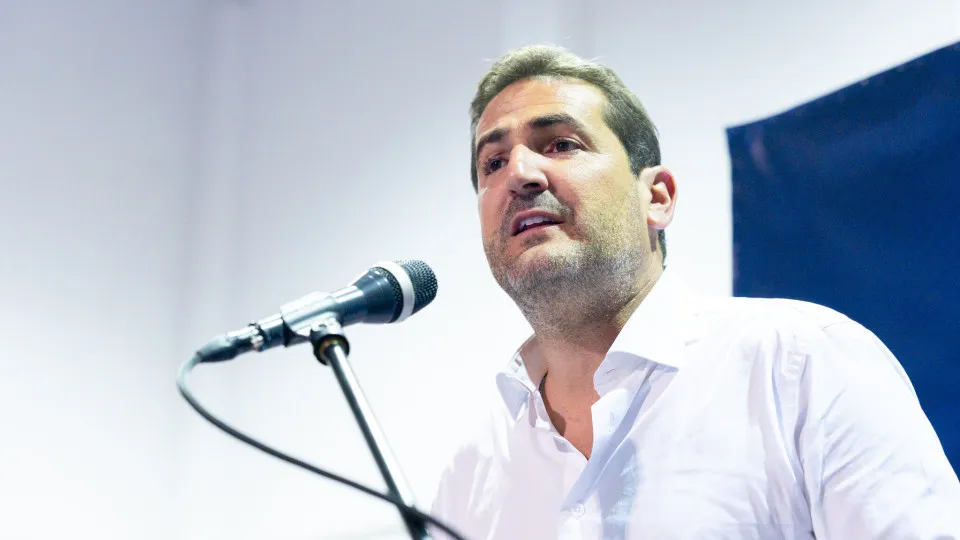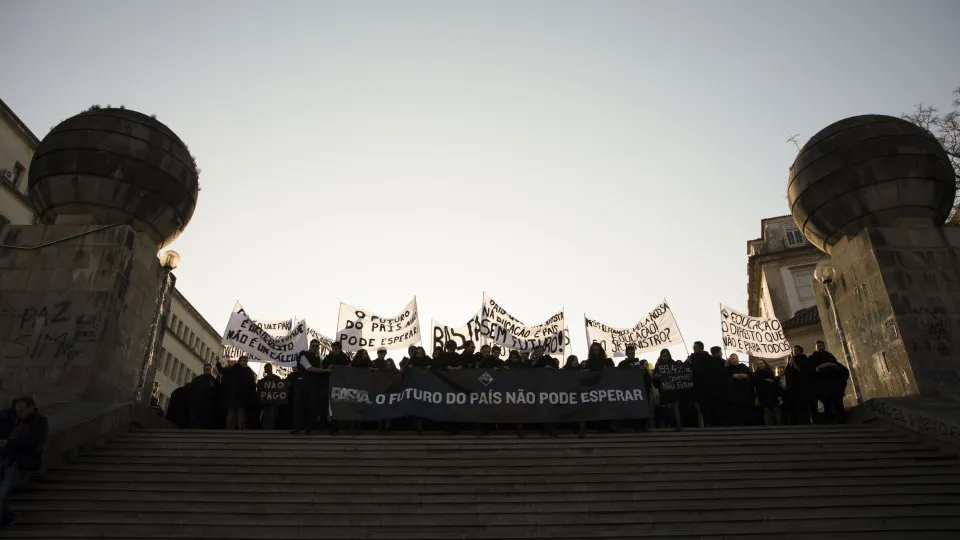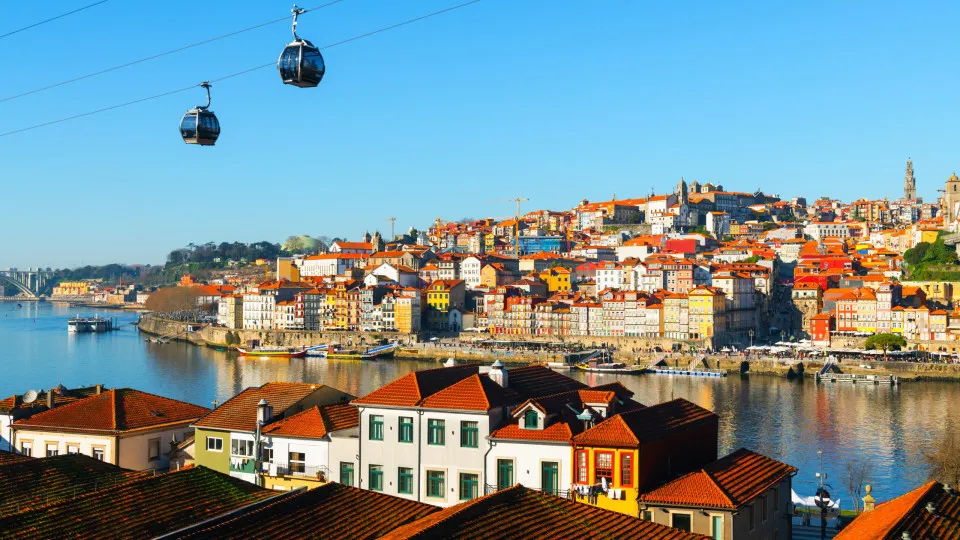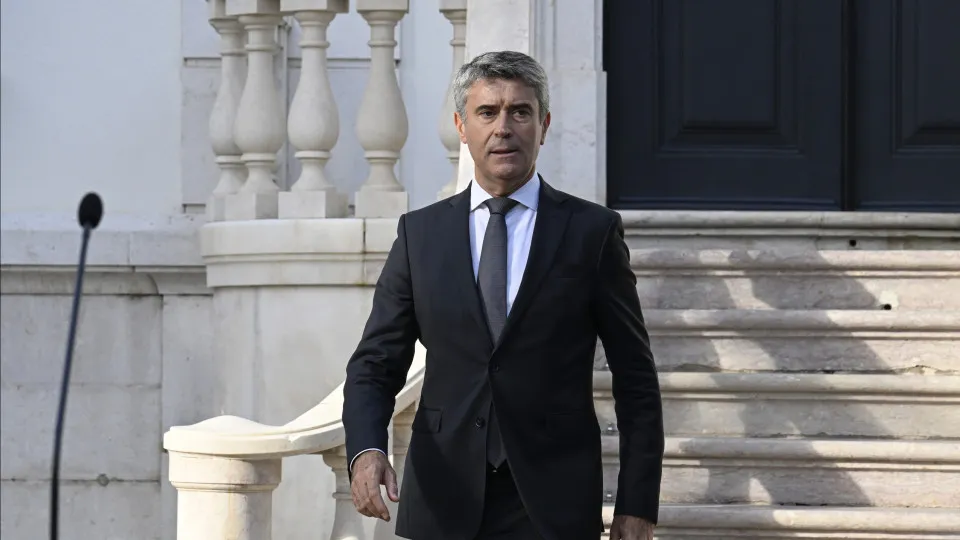Since its founding in 2019, the undercurrents of Chega continue to surface. A new depiction of the party, which claims to represent “good Portuguese people” yet paradoxically “has brought polarization to democratic life, harbored prejudices, and contributed to societal extremity,” is now outlined by journalist Miguel Carvalho, who has exposed the inner workings of the group led by André Ventura.
‘Inside Chega. The Hidden Face of the Far-Right in Portugal’ is the culmination of six years of investigation into a party that has filled its ranks with “a legion of opportunists and fanatics.” Miguel Carvalho emphasized that “hostility towards that electorate, with various prejudices, won’t end well,” as many live “very tough lives” and find “the simplistic narratives” they seek in André Ventura and his followers.
Although, fundamentally, Chega is “a project of personal power […] that discards people as they become useless or threaten, in any way, the stability André Ventura desires,” this ecosystem equally reflects “a troubled country that endures dramatic situations, eyeing the political class with utter disdain.” Thus, at this point, it’s not enough to “solve the Ventura problem.” Despite all the manipulations, illegal recordings to discredit rivals, and even plans to covertly lead the party, Chega is here to stay. It “speaks for [the voters], screams for them, says what they cannot say to the elites”—even while being part of and financially supported by the elites.
The idea that the party could be investigated and banned at any moment, either for alleged external financing or for having within its ranks individuals from neo-Nazi and more violent movements, created a climate of sheer paranoia that Chega continues to exploit to this day
The book opens with an illustrative episode of the paranoia surrounding Chega and its members, notably the potential flight of André Ventura and Luís Graça to Morocco if the party were to be banned. Does this victimization, coupled with theories of persecution by the ‘system,’ ultimately benefit Chega, despite hosting all the vices it vows to combat within its core?
Yes, it consistently works in Chega’s favor. Hence, exploiting this to the limit is done daily. The book probably awakened some people who are still there or have already left to some signs they encountered and now have a reason to connect to what happened back then. It was a very restricted group at the time, yet it was part of the daily practice of paranoia and victimization. It occurred during a first internal civil war moment, where some district authorities gathered semi-secretly—half-secret because it was somewhat secretive, but, as always with Chega, within days everyone knew.
A group of leaders met at a house in Setúbal, drawing up a document with numerous questions—over a hundred, I believe—sent to the direction questioning finances, what the party did with the money, why they were constantly having dinners and traveling. They threatened to send the document to the Public Prosecutor’s office (MP). The notion that the party could be investigated and illegalized at any moment for alleged external financing or harboring individuals from neo-Nazi movements and more violent groups has created an absolute state of paranoia that Chega exploits to this day. Ventura himself has often pointed to situations or episodes where he believes the authorities’ ultimate goal is to undermine him because he fights the system. The idea that the party is constantly under surveillance by the regime, awaiting a pretext to eliminate it, has also fostered internal unity over time.
But it’s not just from the regime. I was reminded of episodes where Ventura felt unwell during the electoral campaign. At one point, he said: “Did you want the Gypsies to kill me in a corridor?“
Yes. Internally, despite all the shifts in Chega’s leadership and teams, that narrative always exists—the idea of exploiting any pretext that questions or supposedly jeopardizes the party’s and its leader’s future. There were indeed direct orders to fuel this. It is a very clear objective, providing less informed and more susceptible individuals to social media narratives with the perception that Chega is the great fighter against regime vices, even though they’re all inside and intensified.
It’s using the Donald Trump and Jair Bolsonaro playbook, as seen now also in the burger issue… Where does this leave us as journalists?
That’s an answer for an afternoon. We generally believed this wouldn’t happen to us. Even António Guterres said years before André Ventura’s election that populism would never succeed in Portugal because we had a tradition immune to it. Here we are. The overall fragility of the media in terms of human, technical, and financial resources—arguably the worst period for journalism in democracy, having faced many—doesn’t allow journalists to be constantly on hand, as was normal pre-Internet, to follow a particular party, building sources with time and trust. Indeed, we didn’t have a party like this. We had the Democratic Renewal Party (PRD). At the outset, in 1985, it also came with a very moralistic discourse, speaking condescendingly, as it were, towards the regime, but the PRD was profoundly democratic in its practices and posture in the Assembly of the Republic. So, we thought it wouldn’t happen, we were fragile in following, already quite susceptible to everything that sparked fire on social media, and was disruptive. We didn’t stop to think, and it was wood we added.
When I started following Chega, I had already done a report, also included in the book, around the time of Basta’s failure, with young people from some far-right, nationalist, identitarian movements, for whom Ventura didn’t mean much. They were well-structured young people within that ideological area, with very firm ideas on certain subjects, and that opened my eyes to Chega. When Ventura was elected, then yes, I dedicated myself [to Chega], but I was privileged. I was at a magazine [Visão] that, despite being on its downward phase, gave me three months to immerse myself without worrying about anything else. I did some more urgent things in between, but when that work for issue X ended, I returned to Chega. When asked if I wanted to stay on it, I said, ‘okay, but I need three months; I want to have lunch with them, dinner with them, I want to know this.’ I started attending all the events. Then, the pandemic hit. I maintained phone contact, but it was somewhat challenging as some didn’t want to talk on the phone, paranoid that the government might listen, or similar reasons. I resumed when the pandemic first subsided, and that was absolutely essential to reach this book. At that time, especially after Ventura’s election, Chega began to influence family and friend gatherings, and everyone talked about it. I received a lot of criticism, not only from colleagues but also from those familiar with political reality, who said, ‘you’re crazy, in a few months, people will realize this makes no sense and will end just around the corner.’ We saw it.

I think no matter the goodwill some people might have to combat this, it’s already too late. From the perspective of messaging and the theatrical circus of creating controversy, he trained in this country’s best gym—television sensationalism—and we were sleeping. When he burst onto the national political scene, we remained asleep at first, and when we finally warned, it was already late. He generated the noise needed to promote Chega. Ventura indeed says that, and I recount some episodes in the book where people ask, ‘do you really want to publish this?’ and he replies he doesn’t believe any of it, but it’s necessary to create noise. Once the noise is made, we’re already chasing it. It’s what I usually say: Chega moves in a Ferrari while we follow on a scooter. Few people regularly monitor Chega. It’s me, Alexandre R. Malhado, Bárbara Reis occasionally delves deeper, Hélio Carvalho… But very few can do this consistently. Visão gave me ample time. They also realized it was worth it, as shortly afterward, they’d have a headline with content nobody else had. What Visão provided enabled me to meet people I normally wouldn’t without a ticking clock and no next-day text delivery pressure. That’s something worth correcting, but we know how things stand.
Currently, what we are witnessing is absolutely pornographic, I have no other word. It seems that on every TV station, Ventura has a room, bed, and laundry ready for him to move to the next studio in hours or the next day. In this utterly fratricidal battle for ratings, which will end disastrously one day, consistently losing credibility in our work, it seems there’s a phrase echoing backstage in TV channels: in despair, call Ventura. Our mediator role went out the window quite some time ago. Chega only can’t do without television, but everything else seems a profoundly masochistic attitude. Ventura shows up in studios, insults the anchor, insults the commentator, bullies the journalist, criticizes the station providing yet another opportunity for him to talk about things that generally aren’t newsworthy, and still, we continue to invite him. This is schizophrenic to an extent. They don’t need us. Actually, those who cover Chega more routinely know that, in most cases, their communication office doesn’t respond to inquiries. They needed us, but then we were sleeping.
Despite numerous justifications and claimed “mistakes,” it became evident that Chega gathered false signatures. Wasn’t that a foreboding sign right from the start? How can we consider a party legitimate that resorts to forged signatures to legalize itself?
Yes, I believe the judicial system had some shortcomings here. But note: the first sign that Chega is a project arousing serious suspicions is the coalition in the European Parliament. Chega wasn’t legalized, its process wasn’t completed in the Constitutional Court (TC), it rode on that candidature’s coattails, and when things fell apart, it was the Monarchist People’s Party (PPM) that shouldered the blame because, formally, Chega didn’t exist. I outline several financial mishaps that fiasco entailed, including André Ventura’s responsibilities in them, in the book.
When the party is constituted, there’s one thing astonishing to me: first, the Court of Accounts (MP) shelving the case, affirming that Chega indeed employed numerous fake signatures. Anyone checking the process will find various testimonies there—I believe dozens—from individuals whom the MP contacted to verify whether it was their conscious signature requested on these applications, to which many replied they didn’t know how their signature ended up there. A suspect is identified for these schemes: Nuno Afonso, who’s exonerated. Numerous individuals questioned who have a part in this point to André Ventura as the organizer of signature collection. He doesn’t collect them himself, but he initiates this gathering, paying from his own pocket. They canvassed social housing neighborhoods, even asking Roma individuals for signatures, which holds its irony. It’s from his pocket—around 40,000 euros, I believe—that a large portion of these signatures gets paid. This is poured into the process, taking some time. He was never heard. There’s a document outlining the conversation between the prosecutor and Nuno Afonso, where Nuno Afonso defends himself as he knows. Everything points to André Ventura. When this happens, he promises, as he always does, that it will be internally investigated to the very end, and we’re still waiting today.
He seems to have a protective dome around him or manages to have those around him get hands-on while he observes and leads from a safe distance.
Yes. Tânia Tomaz, Chega’s secretary during the presidential campaign, got a call when formalizing the bank account, and she’s asked for her details to be listed as the financial mandatary. We’re talking about a party that is primarily a project of personal power, discarding individuals as they become useless or pose any threat to André Ventura’s desired stability for the party. Individuals who could overshadow him, who question excessively, or who are independently minded were frequently sidelined until he shaped the party to his image. It’s not by chance that the TC has pointed out very serious aspects concerning internal democracy since 2020. Chega continues with its organs illegal; many were expelled, while others left themselves for considering the party less free now than at the beginning. Indeed, everyone used to say what was on their mind, but along this way, it became [less free], because obtaining independent thought is very difficult. Gabriel Mithá Ribeiro tried, and what happened, happened.
What exists around him—and I don’t confuse that mechanism with its electorate—is a legion of fanatics, individuals, in some instances, who were politically, family-wise, or professionally rudderless for years and now have employment. They see ambitions, a dream political mission, come to life which they didn’t have in prior political party machinery within their district. Therefore, they’ll continue to follow until their challenge arises. As Fernanda Marques Lopes says, if it comes to an end, he’ll end alone with Luc Mombito because he’ll remain loyal until the end.
Regarding Gabriel Mithá Ribeiro, then, do you think he was sidelined and didn’t suspend his parliamentary mandate due to “personal reasons,” as it was stated?
It’s quite evident: Let’s center this—The interview is from 2021. I warn at the beginning that certain things might be dated, yet since it reflects his thinking about the party—and not only—I retain it intact as it is crucial that the party’s chief ideologue has a space in the book to share his thoughts and motivations for being there. Naturally, when the book is released around now, and André Ventura alongside others read what [Mithá Ribeiro] says about the party, which several people complained about secretly at the time… The leadership is absolutely relentless in such scenarios. The relationship with Mithá Ribeiro was always combative. The party wasn’t particularly concerned with ideological questions. As he chances to mention, numerous reports were submitted, yet Ventura didn’t read them. He never saw eye to eye with that “tavern-like” method of doing politics. In that universe—whether we like it or not—a man has ideas regarding the Right where he resides.
The day I interviewed him, he was present at Chega’s local convention in the North. As he took stage, half the audience left or yawned. The party was never accommodating. The idea was to provide Mithá Ribeiro with something for distraction, a semblance of ideological seriousness and backstory the party could potentially capitalize on later. However, he never managed to accomplish much. Just converse with some individuals who worked in the study office to ascertain that; it progressed as far as André Ventura deemed beneficial. From the most recent controversy, he was more tolerated than respected. Now, they found their pretext. Whether they commenced a witch hunt I’m unaware, but they’ll continue having bad luck as I persist in speaking with many in Chega from the top down to the absolute base.
Then, what really is Chega’s ideology?
There isn’t any. It’s the ebbs and flows, the direction of the wind. Various people describe how legislative projects were presented—when they were presented because some were only announced to stir the media. They’d tune in to radio in the morning, see what’s “trending” and draft legislation. Comparing Chega to other similar political family parties, like the Patriots for Europe, substantively, is a colossal mistake; it’s like comparing water to wine. Chega hasn’t undertaken that work. Mithá Ribeiro attempted; Diogo Pacheco de Amorim here and there, too, but not at the same level. Jaime Nogueira Pinto might have offered some tips at one point, but that also isn’t perceptible in Chega’s intentions. Therefore, as Gabriel Mithá Ribeiro says, it operates via André Ventura’s intuition and instinct.
In 2021, Ventura argued that if they won Municipal Offices in local elections, he’d take stern action against Roma communities, even though this was never discussed with the direction; it was a thought plucked from his head and pursued. Comparing this party with Vox, whether you like it or not, besides having remnants from the Francoist tradition along with various Spanish rights, engages in ideological work, that is entirely stupid, beyond all Ventura’s contradictions concerning Chega’s international role. The Alternative for Germany (AfD) is no longer part of this group, yet in a 2020 Público interview, he stated the AfD was awful and unimaginable. Last year, he attended their congress, proclaiming the AfD as Germany’s future. That’s all but ideological.
It’s as if André Ventura has 10 or 12 topics and the Chega voter, generally—a segment knowing precisely what they’re supporting—selects three or four. It’s highly contradictory; some despise his remarks about Roma but agree with his immigration stance, and vice-versa
There’s that Salazar association with ‘God, Homeland, Family, and Work’ but beyond that…
It’s more symbolic than anything else. Some support, partly financial, comes from individuals nostalgic for that period, a certain financial elite that fell with the April 25th Revolution and attempted the counterrevolution, whom Diogo Pacheco de Amorim is quite close to. It’s a constant Chega tactic, hence being everything and its opposite, pulling from Left and Right. This also poses an issue for those attempting a regular information-based coverage of the party. One of our errors was analyzing Chega using standards historically applied to others.
Yes, as it’s not the traditional far-right.
There’s no traditional anything. When I compare Chega to a restaurant, it’s along those lines. The last time I checked my phone, I had over a hundred contacts from Chega, both from those still there and those who have left, regular enough to discern their thoughts about this and that. Chega is a party breaking everything known prior. If you’re a militant or voter of any historically known party for many years, you agree with 70% to 80% of what they say. You might dislike or think government X was better than government Y, or that the best leader was that one rather than this one. You might disapprove of certain policies, but overall, you align with their ideas. Chega isn’t like that. It’s as if André Ventura has 10 or 12 topics and the Chega voter, generally—a segment knowing precisely what they’re supporting—selects three or four. It’s highly contradictory; some despise his remarks about Roma but agree with his immigration stance, and vice-versa.
I encountered militants, in fact, leaders from Chega suggesting subordination discourse regarding women in our society, persecution of women, etc., echoing the Left Bloc (BE) discourse. For them, there’s no issue. After pointing this out, their response was, ‘that’s your problem, not mine’. This is highly disruptive. The issue is no longer ideological; it stems from something social networks enabled, engagement, and stimuli. These things aren’t ideologically tied, they can pull individuals from any party, and they do.
Then, how do you combat a party capable of uniting everything and its opposite, even leveraging false information, which eventually pits people against each other?
That’s the goal. It’s receiving the Social Insertion Income (RSI) yet feeling the neighbour, in identical circumstances, shouldn’t. One thing I witnessed and inspired exploring that idea is Ken Loach’s film ‘The Old Oak’. When a group of Syrian refugees arrives in an impoverished British community, once a mining stronghold revelling in community ties, mutual support, and professional dignity within the community, it emerged as a serious threat. The film’s main figure, running the land’s last pub, mentions the significant problem lies in punching the one beside you or the one who, under your belief, directly threatens your livelihood. You never strike the entity responsible, as it’s perched high up. Whether it’s in the sky or as a CEO, this entity is beyond reach; that savage capitalism and the financial and economic elites responsible won’t get punched. An immediate threat is believed to be a rival for what little you have left. They aren’t, but you regard them as such.
Ventura adeptly exploited this with intelligence. Early in Chega’s days, he traversed Portugal’s interior where politicians hadn’t ventured in ages. Though he presented no solutions, perhaps similar to today, familiar promises ensued alongside loud demonstrations, yet people felt embraced. He remains the battery for these individuals, like he still is.
Simultaneously, he also served as the psychologist.
Yes, this delves into social psychology. Individuals were dupe-trapped by governments that didn’t uphold their word. It’s the truth, confirmed through myriad conversations with Chega militants, voters, and former leaders in Portugal’s interior and suburban regions. Conversations never initiated with Roma or immigration concerns but rather concrete local issues; the unbuilt promised road, the unchecked construction of certain hospitals, schools, or a post office closure. The state has forsaken vast areas for quite some time. Resentment and anger arise on such grounds among individuals without the media or political literacy to comprehensively understand the world they reside in.
Need for media literacy among adults, akin to youth literacy advocacy, is pressing. Joana Gonçalves de Sá, probably among the country’s best scientists, who diligently studies people’s reactions to misinformation, frequently states many fake news shares originate from somewhat educated individuals. Those occasionally reading books, watching news, going to theaters or cinemas sporadically. Due to their informa…
Read More




